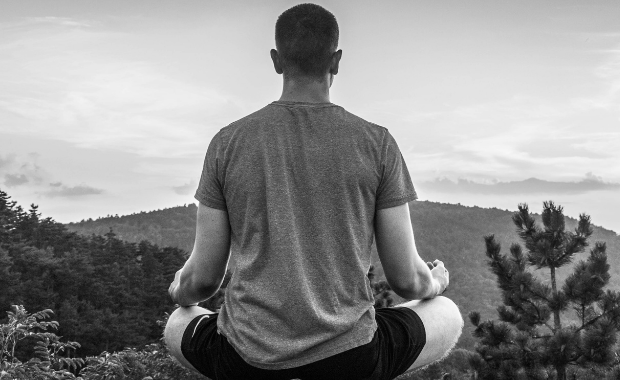Success Advice
How To Build An Empire With Mindfulness

Mindfulness is the new buzzword and has gained traction over recent years. But what is all the hype about it and how can it be used to help us achieve our dreams? How many times have you been stressed out, overwhelmed and unsure what direction to take, especially with everything that is currently happening right now in the world?
With mindfulness we can learn to identify what is happening within our body and minds and create space in-between stimulus and response. Being able to take a step back and assess the situation, we will be better equipped to make improved business decisions which will naturally lead us to success.
Mindfulness is a holistic practice. The general idea is to observe physical sensations and psychological experiences, desires, emotions, feelings, thoughts. Given that a feeling is both a physical sensation and a thought process, the goal is to integrate body and mind in a heightened sense of awareness. That is, to understand that body and mind are not separate, and to learn to understand all sensations and their link to our thoughts.
Mindfulness is about developing the ability to not dwell in the past, not obsess about the future, but to concentrate on what is going on right now. But what does mindfulness do and how can it help?
1. Mindfulness and Resilience
A benefit of mindfulness is that it improves resiliency. Practising mindfulness helps you to approach situations positively instead of becoming overwhelmed and stressed out. Instead of getting caught up with the emotion of anger, failure, or envy, we can pause, breath, take a step back and choose not to engage with the emotion and move on. Over time we become less reactive and strong emotions will arise and fall away without being caught up in the story line.
You can carry out this task throughout the day by starting to become aware of having negative emotions you encounter throughout the day. Maybe a lead hasn’t happened, or a client isn’t happy with some of the work you have produced.
Start to identify what feelings and sensations are arising in the body, either with tightness in the chest, clenched jaw, or ruminating thoughts of failure. Once you have located the sensation, close your eyes, and take long deep breaths. Listen to your mind and the thoughts which are racing, know that they are just temporary and will pass. Once you identify and hear the thoughts but choose not to engage with them, they will pass through you more quickly and won’t impact your whole day.
To train in mindfulness you can start by sitting on a park bench or another public area every day for 5 minutes. Practice just looking ahead as people walk past, even if you are tempted to look away, continue to focus on looking ahead. You can focus on what people are wearing, the types of fabrics or colours they are dressed in. Anything that keeps your focus on the present. If you do this daily for a few weeks you can access the effects of the practice on the rest of your life.
“Mindfulness means being awake. It means knowing what you are doing.” – Jon Kabat-Zinn
2. Enhanced Task Performance
Mindfulness also helps to improve task performance. This is because it trains your brain to be better at concentrating because each time you notice your mind wandering off, you are intentionally bringing your attention back to the object you are focusing on.
For example, you are at work, you’re receiving loads of email, you’re receiving messages on your phone and you are trying to multitask and do a million things at once. The next time you find yourself doing this, stop, take a deep breath, turn off your email and phone notifications and focus on the task you have in front of you.
3. Goal Setting
With daily mindfulness, you provide yourself with the opportunity for consistent self-reflection. Here, you can thoroughly analyse your past successes and failures. With this clarity, you’ll be able to better plan and tackle your future goals. It can also create a place to pause and reflect. It’s a safe headspace to go to when things don’t go quite right, or if you’re unsure of the next move.
Additionally, you can set better, attainable goals. Developing self-awareness can help you decide which goals are self-appropriate. Maintaining goals that are realistic with your values, beliefs and life circumstances makes them easier to achieve and aligns you with what most matters to your life.
“Nothing ever goes away until it has taught us what we need to know.” – Pema Chödrön
4. Balance
By promoting mindfulness in your workday, you can identify habits which are helpful or unhelpful. No matter how much we love our jobs, who will look back on life wishing they spent more time responding to messages at midnight?
Recognising our thoughts and anxieties around not responding will help us to unravel the poor habits which keep us stressed out, overwhelmed and unhappy. When we notice we are engaging in these behaviours we can stop, pause, realize what we are doing and choose to put down the phone, walk away and get some rest. This will naturally lead to a more balanced work life as we learn to identify our needs, what would make us happy and start to implement small changes.
Life
10 Research-Backed Steps to Create Real Change This New Year
This New Year could finally be the one where you break old patterns and create real, lasting change.

Every New Year, we make plans and set goals, but often repeat old patterns. (more…)
Change Your Mindset
The Silent Skill That Makes People Respect You Instantly
What truly earns respect and why most people go about it the wrong way

Everybody craves respect but not everyone earns it. Some people believe that a title, years of experience, or a position of authority automatically entitles them to respect. (more…)
Entrepreneurs
The Essential Skills Every Entrepreneur Needs In 2026
Success in the digital age isn’t about luck. It’s about mastering the skills that separate dreamers from doers.

When I was 22 years old, I started my first side hustle as a ghostwriter. (more…)
Did You Know
The Success Patterns You Inherited (And Didn’t Notice)
Your family history may hold the key to why you think, act, and feel the way you do today.

Who are you? Your experiences and your family’s narratives and legacies contribute to your identity. Your ancestry contains individual traits and forces that have been inherited over the years. It also carries the fights and victories of your forebears and older family members. (more…)
-

 Personal Development4 weeks ago
Personal Development4 weeks agoThis Silent Habit Might Be Sabotaging Your Career
-

 Business3 weeks ago
Business3 weeks agoWhy Your E-Commerce Fulfilment Is Probably Broken (And How to Fix It)
-

 Shift Your Mindset3 weeks ago
Shift Your Mindset3 weeks ago11 E’s That Define Every Great Leader And Why Most People Miss Them
-

 Did You Know2 weeks ago
Did You Know2 weeks agoThe Success Patterns You Inherited (And Didn’t Notice)
-

 Business3 weeks ago
Business3 weeks agoThe Hidden Money Pit in Your Operations (and How to Use It)
-

 Entrepreneurs2 weeks ago
Entrepreneurs2 weeks agoThe Essential Skills Every Entrepreneur Needs In 2026
-

 Change Your Mindset1 week ago
Change Your Mindset1 week agoHow to Turn Your Mind Into Your Greatest Asset (Instead of Your Enemy)
-

 Change Your Mindset6 days ago
Change Your Mindset6 days agoThe Silent Skill That Makes People Respect You Instantly


























